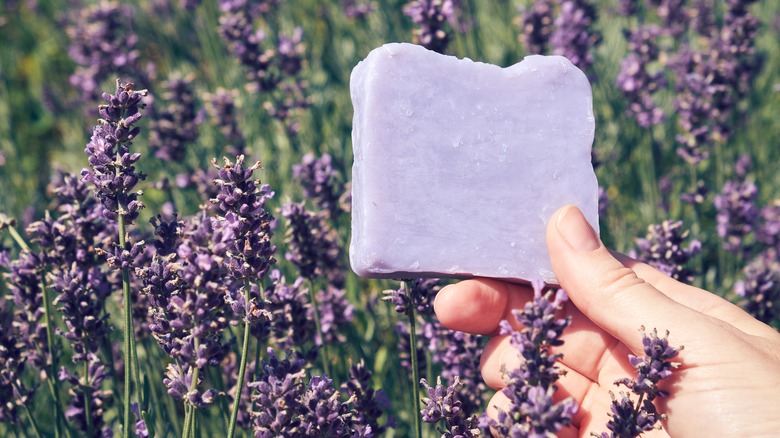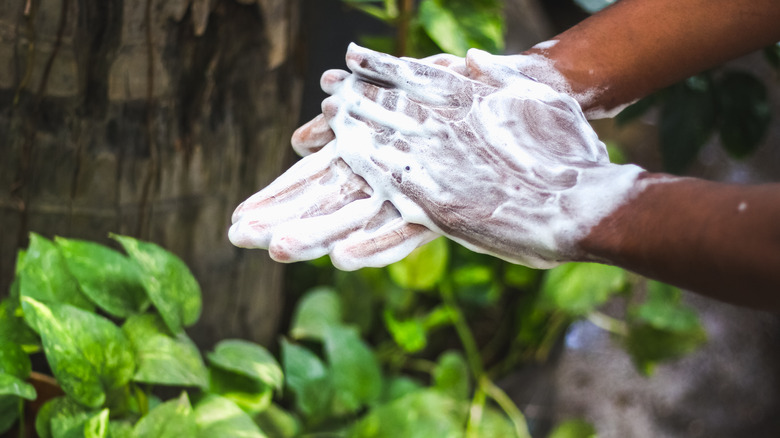The Important Safety Reason To Keep Soap With Your Gardening Gear
Tending to your beloved garden or killing pesky weeds in your lawn can quickly take a turn for the worse if you accidentally come into contact with poison ivy, poison sumac, or poison oak. According to the American Skin Association, around 85% of Americans are allergic to these poisonous plants, with 10 to 15% falling on the deep end of the spectrum. In fact, these plants affect almost 50 million US residents annually and are the most common culprit behind allergies. Fortunately, washing the affected areas with soap and water immediately can help minimize the damage. This is why it's important to keep soap with your gardening gear.
Since these poisonous plants are ever present in America (except in Alaska, Hawaii, and a few deserts in Nevada), there's no escaping them in your garden. So, instead of risking painful skin rashes, it'd be best if you keep a bar of soap handy to thoroughly wash the affected areas and remove the poisonous resin, urushiol, from your skin. Plus, if you have soap handy, you won't have to wait until you go inside your house to scrub your dirty hands and fingernails.
Keep soap in your garden to combat contact dermatitis
Contact dermatitis, also known as a skin rash, can result from touching certain poisonous plants in the garden. Specifically, the rash is caused by a colorless, fragrance-free, and clingy resin called urushiol. This resin is present on the plant's stems and leaves, so even an accidental brush can be lethal for your exposed skin and will trigger an itchy allergic rash within 24 to 48 hours. Even if you wear gloves and cover your body adequately while gardening, patting or hugging pets who have come into recent contact with poison sumac, ivy, or oak can spell doom for your skin.
Although your pets might not be sensitive to these plants, the sticky resin might cling to their fur and irritate your skin upon contact. Dead plants aren't safe, either. To prevent such an outcome and remove the resin clinging to your skin, it's necessary to wash the skin with soap and water within five to 10 minutes of contact. So, keep a bar of soap in your garden to instantly wash your exposed skin and fingernails. Don't forget to scrub the nail beds. Avoid scratching the itchy areas, or you risk developing blisters. Moreover, clean your gardening tools, gloves, and other clothing items that might have come in contact with the poisonous plants to cover your bases.

